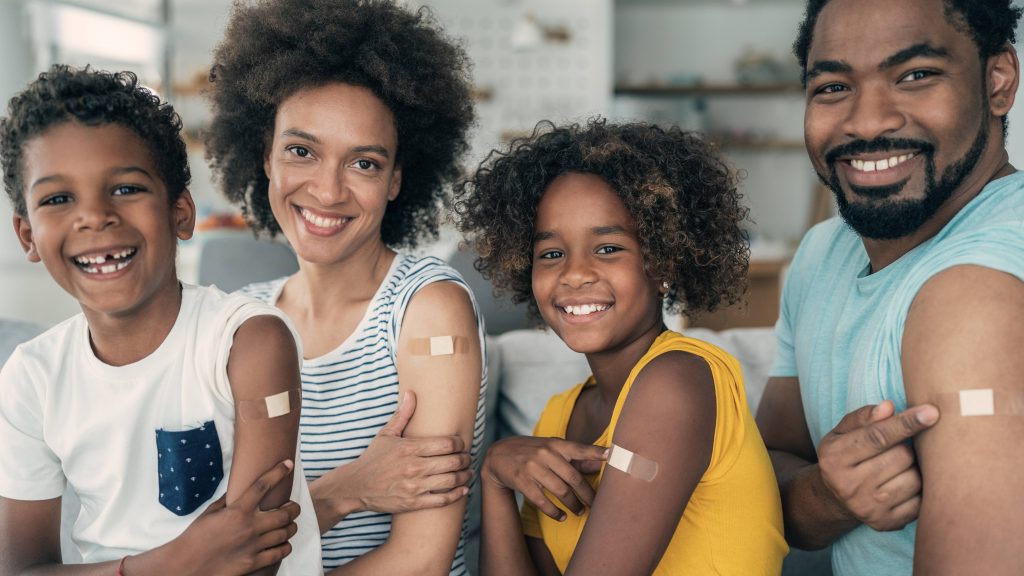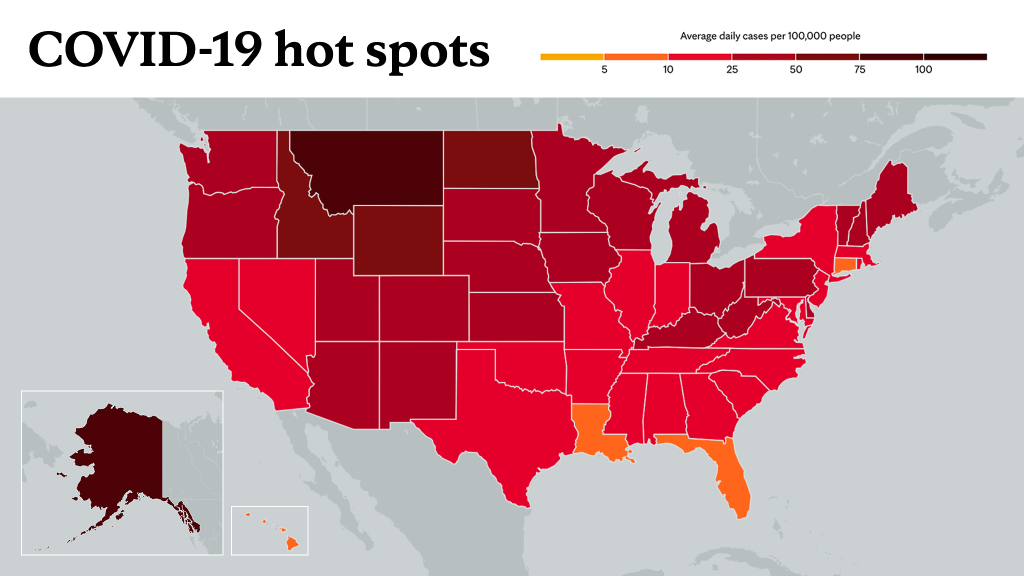-
COVID-19
Debunking myths about COVID-19 vaccinations and kids

The Centers for Disease Control and Prevention (CDC) has given the green light for 28 million children in the U.S. to be vaccinated for COVID-19. This comes after the Food and Drug Administration granted emergency use authorization for the Pfizer COVID-19 vaccine in children 5–11.
CDC officials encourage parents who have questions about their children getting vaccinated to talk to their health care providers. They also stress the importance of getting younger children vaccinated as soon as possible.
Here are some common myths about COVID-19 vaccines and kids:
- MYTH: Children do not get infected with COVID-19.
This is not true. Children of all ages have become ill from COVID-19, and thousands have been hospitalized with serious complications. Many children, especially those with preexisting conditions, have died from COVID-19. Children also may suffer from multisystem inflammatory syndrome in children, a postinfection complication that occurs weeks after infection and can result in hospitalization and a need for intensive care. In addition, children infected with COVID-19 are more likely to have long-term effects, such as fatigue, and reduced attention and ability to learn in school. - MYTH: Children do not need to be vaccinated for COVID-19.
This is not true. Children should be vaccinated for COVID-19 because vaccination reduces the risk of children becoming infected with COVID-19, or becoming seriously ill or dying if they are infected. The more children who are vaccinated, the harder it is for COVID-19 to spread and for variants to develop. This keeps schools and community activities available. Children who are unvaccinated and are infected with COVID-19 are more likely to have long-term effects, such as fatigue and reduced attention. - MYTH: Children who previously had COVID-19 do not need to be vaccinated.
This is not true. Children who previously were infected with COVID-19 can and do get infected again. Getting vaccinated for COVID-19 boosts any natural immunity that may have developed in those previously infected . The vaccine has been shown to enhance their short-term and long-term protection against COVID-19. - MYTH: Children who will turn 12 in the next year should wait until then so they can get the adolescent and adult dose of the COVID-19 vaccine.
This is not true. The dose approved for children 5 to 11 years old makes just as much antibody and protects just as well in this age group as it does in those who are older who get the adolescent and adult dose. Furthermore, the child dose in the 5- to 11-year-old age range is no more reactive and is just as safe as the larger dose. Waiting until later leaves the child unvaccinated and unprotected.
Related posts:
- 11-3-2021 Media Only News Briefing: Approved COVID-19 vaccinations for children ages 5-11
- Mayo Clinic COVID-19 vaccination plan for children
- Mayo Clinic Q&A podcast: Building a wall of immunity against COVID-19
Learn more about COVID-19 vaccines at mayoclinic.org.








